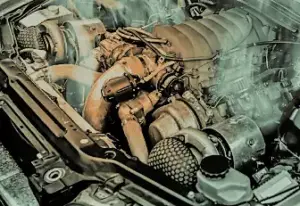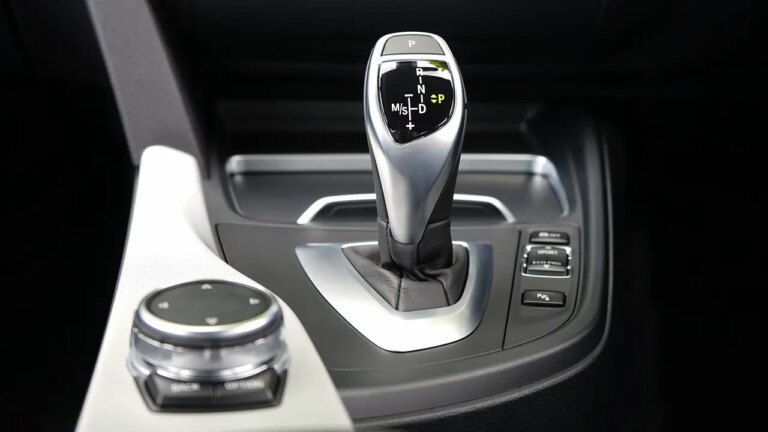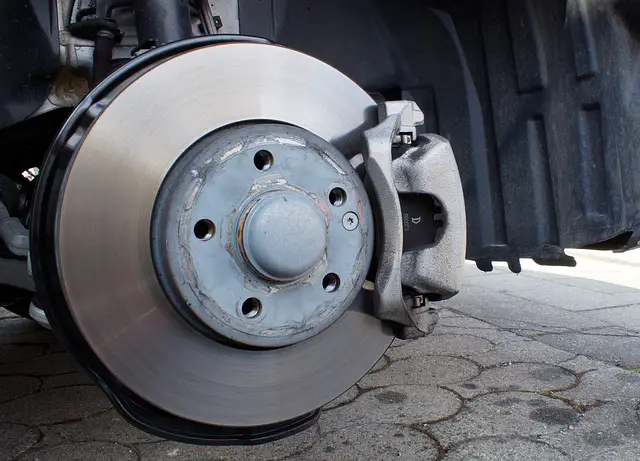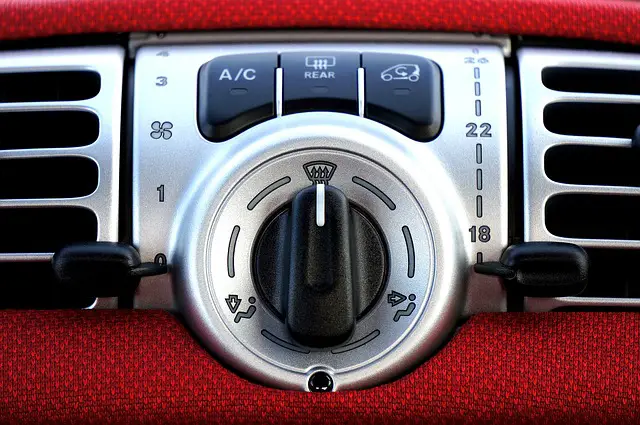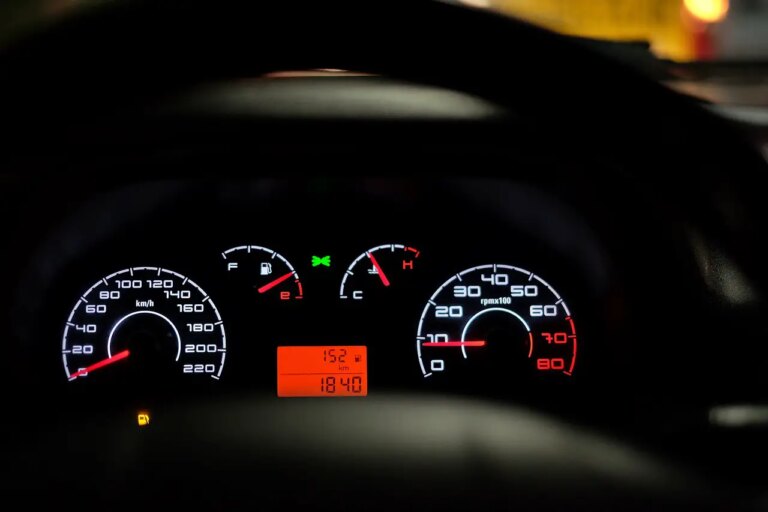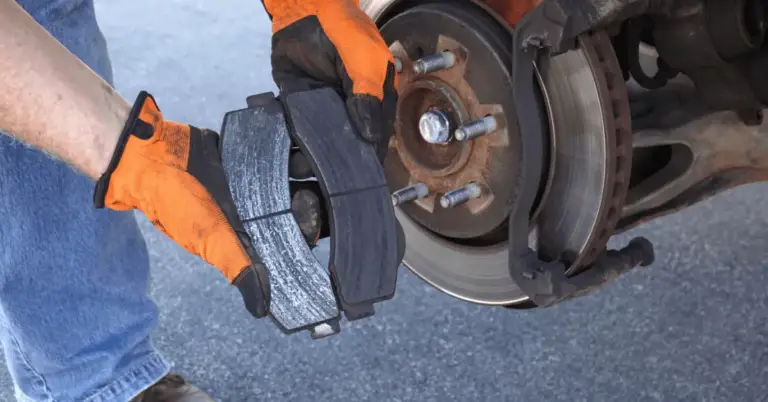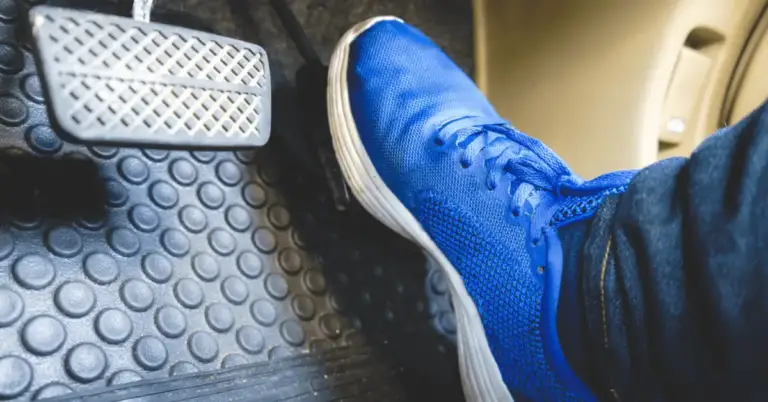Here we’ll look at whether lug nuts can work their way loose from the stud, why it happens, and the symptoms to look out for.
Before we get into the details though
Car wheel nuts can come loose. It usually happens within the first 100 miles of having a wheel refitted back onto a car either because the lugs weren’t tightened to the correct torque or were cross-threaded.
What Causes Lugs To Come Loose?
Incorrect Tightening of The Nut
Most people would assume that under-tightening would be bad, but over-tightening wouldn’t cause any issues.
This isn’t true.
Tightening will cause the wheel to come loose over time, as you’d expect – but over-tightening is also bad.
Overtightening can stretch the nuts beyond their safe and tested limits, resulting in cross threads and cracked or seized-up lugs on the stud.
Each car manufacturer outlines what the correct torque should be for their cars. All tire shops will have this guide and adhere to it when replacing a wheel on your car.
This is called the clamping force and is the ideal torque the nut should be tightened to.
Most torque wrenches will also click when the wheel nut is tightened to alert the fitter. Here’s a useful guide on the correct torques for all car wheels. It’s worth mentioning that alloy and steel wheels on the same make and model of car will vary.
The torque setting is normally between 110 N⋅m and 120 N⋅m.
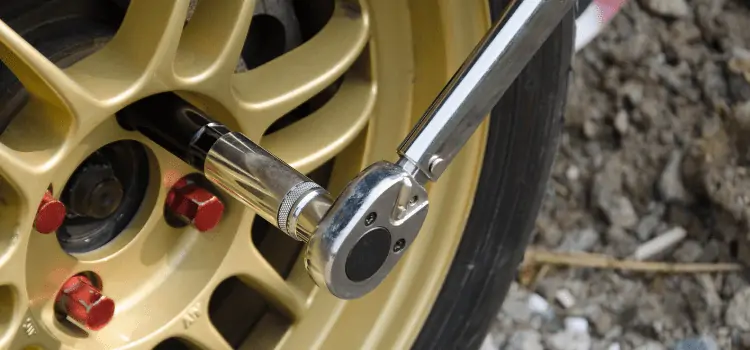
Steel Lugs with Aluminum Alloys Issue
Wheels nuts come loose more nowadays than they used to. Back in the day, before alloy wheels, steel wheels were the only option. There is no doubt modern alloys make a car look good and are also lighter than steel, but there is a trade-off.
All lugs are made of chrome-plated steel. And here lies the issue.
When you have two different metals in contact with each other, you can have problems with the temperature at which they expand and contract. There’s no problem if you have a steel wheel and lug nut, but aluminum and steel can create an issue.
The range at which these metals expand and contract may be narrow, but the slightest change will cause the lug to loosen – especially if the car shop was very hot or cold when they tightened the lug.
Dirty Surfaces
The lug and the thread of the alloy or wheel need to be cleaned. If they’re not, the lug may not bind correctly with the stud thread.
Mud, paint, and rust ( steel wheels) should be removed before the wheel is refitted.
Metal Fatigue
This is quite rare and can only happen if two conditions are met.
Overtightened Lug
The lugs have been stretched beyond their normal range and are under more strain than designed.
Wheel Not Removed For A Long Time.
It’ll be obvious that a lug is fatigued, so any tire shop will notice this when they take the wheel off. If you’ve had no reason to have the wheel off – to replace brakes or get new tires, for example – the nut may have been under excess strain for many years. The lugs could have cracks in them or be rusted.
When Do They Come Loose?
The most likely time that wheel nuts come loose is within 100 miles of the wheel being fitted back onto the assembly.
It’s unusual that after this time, they will suddenly loosen as the cause of them being loose is incorrect fitting, not general driving.
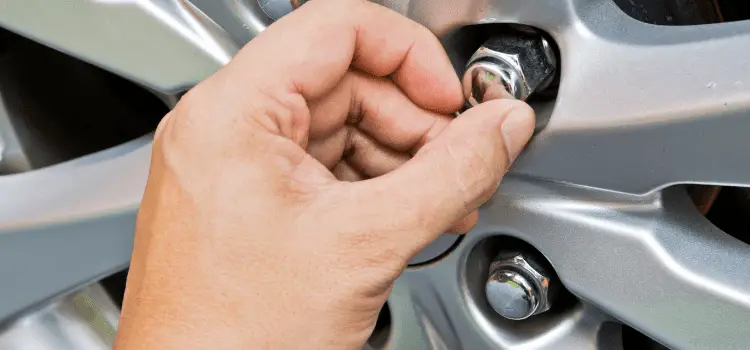
Most tire shop paperwork will advise you to check the lugs are tight after 100 miles of driving on new tires. Although most people will ignore this, it provides the shop with some legal defense should a loose wheel come off and cause injury or damage to another car and you hadn’t taken their advice.
How Do You Know If They Have Come Loose?
Vibration
The main sign is you have wheel vibration. The problem is that shaking can be caused by many other issues, such as damaged suspension, tire out of round and bent rims.
However, if you’ve recently had your wheel taken off and then refitted, a loose lug is the most likely cause of the vibration. Often especially if the loose nut is on a drive wheel, the steering wheel will shake too.
What Sound Do Loose Wheel Nuts Make?
If you have one loose nut, you’ll probably hear no noise, but if two or more of the five lugs are loose, then you may hear are:
Humming Noise
You might hear a loud hum at speeds above 30 mph. At this speed, the wheel’s revolutionary cycle is fast enough to emit a noise when the loose nut is put under the most strain. The hum may dip and increase quickly the faster the car is driven.
Clunking Noise
A clunking noise is likely on uneven roads or when turning as the loose nuts are put under more pressure. This indicates the nut is pulling against the stud.
What Should You Do If You Think They Are Loose?
Very simply, if you suspect a lug or two are loose, you need to pull over when safe and get them checked out.
If you have a torque wrench, then great, you can check yourself. If you only have the standard wheel brace in the trunk with your spare wheel, you can tighten this as a short-term solution.
You’ll need a torque wrench, though, to make sure you haven’t over-tightened or under-tightened. If you don’t have one, a tire shop will check the tightness for a few dollars.
What Would Happen If You Don’t Tighten Them?
If one loose lug is on a wheel, it will eventually work its way loose and either shear off or fall out. The other three or four lugs may take the additional strain in the very short term.
Eventually, though, they will also fail and may shear off when you’re driving.
If more than one lug is loose, all the nuts could fail at the same time, and you may lose the wheel. If this happens, the wheel becomes a bouncing bomb and can crush other cars and people that get in its way.
If you suspect that you have just one lug nut loose, you need to get it tightened to the correct torque before driving any further.
In Summary
Car associations advise inspecting the nuts’ seating every 50 to 100 miles and tightening them if required. The wheels may not be seated as securely as needed, resulting in the nuts working loose over time.
- Wheel lugs can come loose from the studs.
- The signs are shaking and steering wheel vibration.
- You may hear a clunking or humming noise.
- You should stop as soon as you suspect a lug may be loose
- If you are tightening the lug yourself, ensure you know your car’s torques/clam force. They are all different.
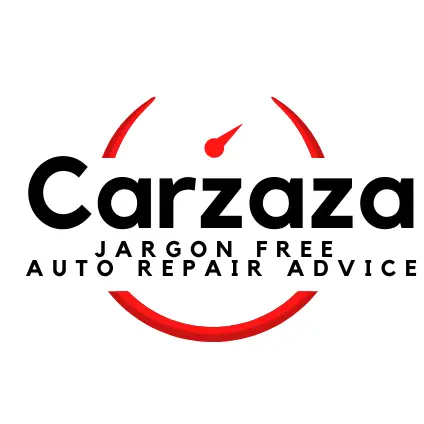

![How Long Do New Tires Take To Put On? [ANSWERED] Torque-wrench-tire](https://carzaza.com/wp-content/uploads/2023/12/Torque-wrench-tire-300x150.png)
![How Fast Can You Go With Studded Tires? [Answered] stud-tires](https://carzaza.com/wp-content/uploads/2023/12/stud-tires-300x150.png)
